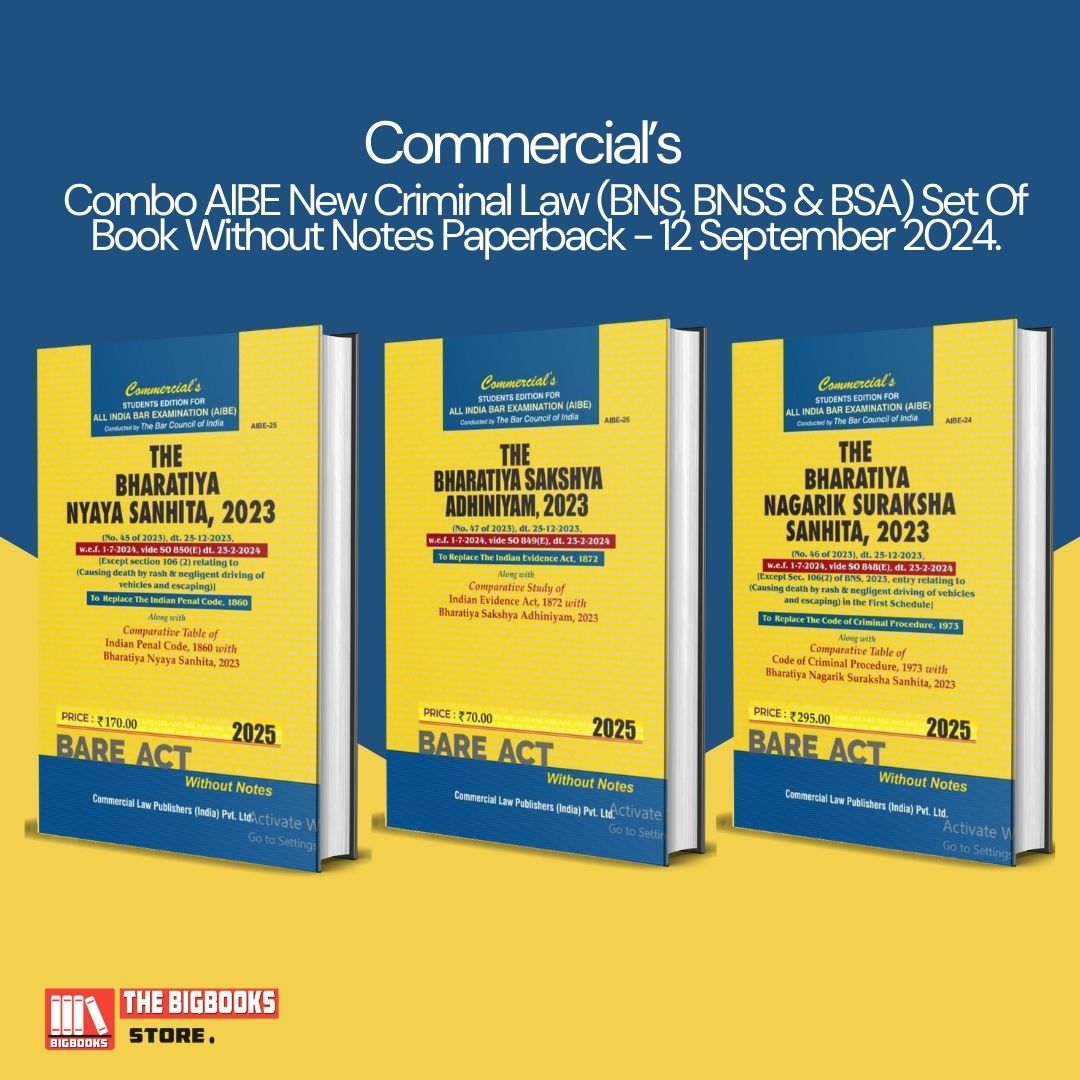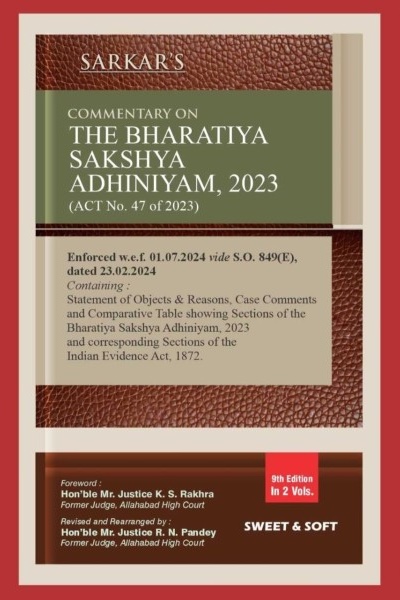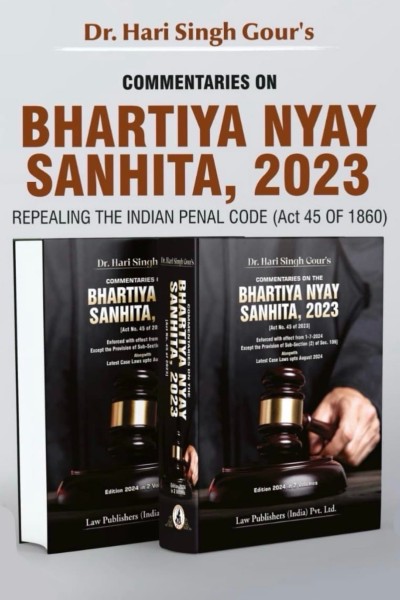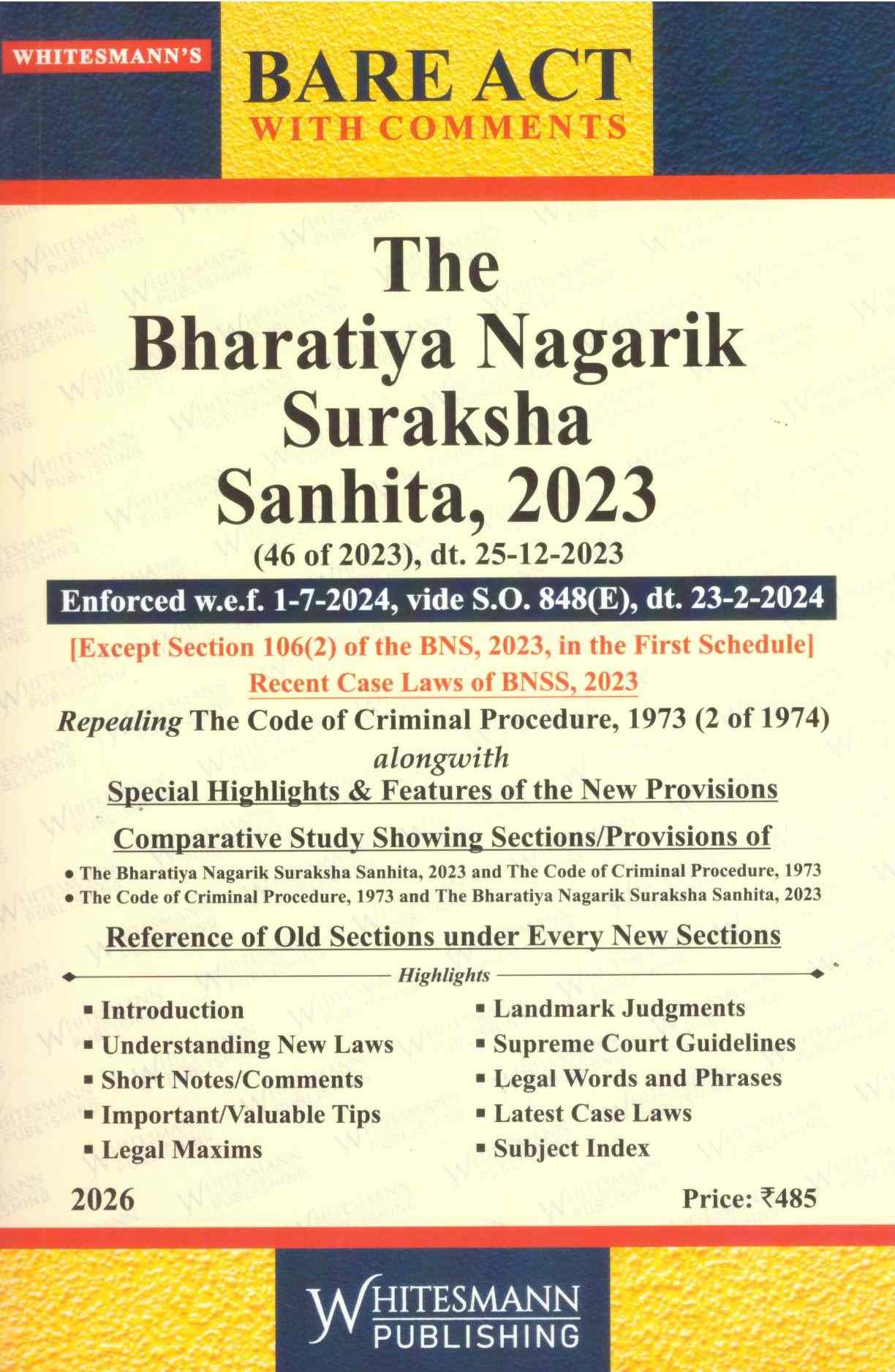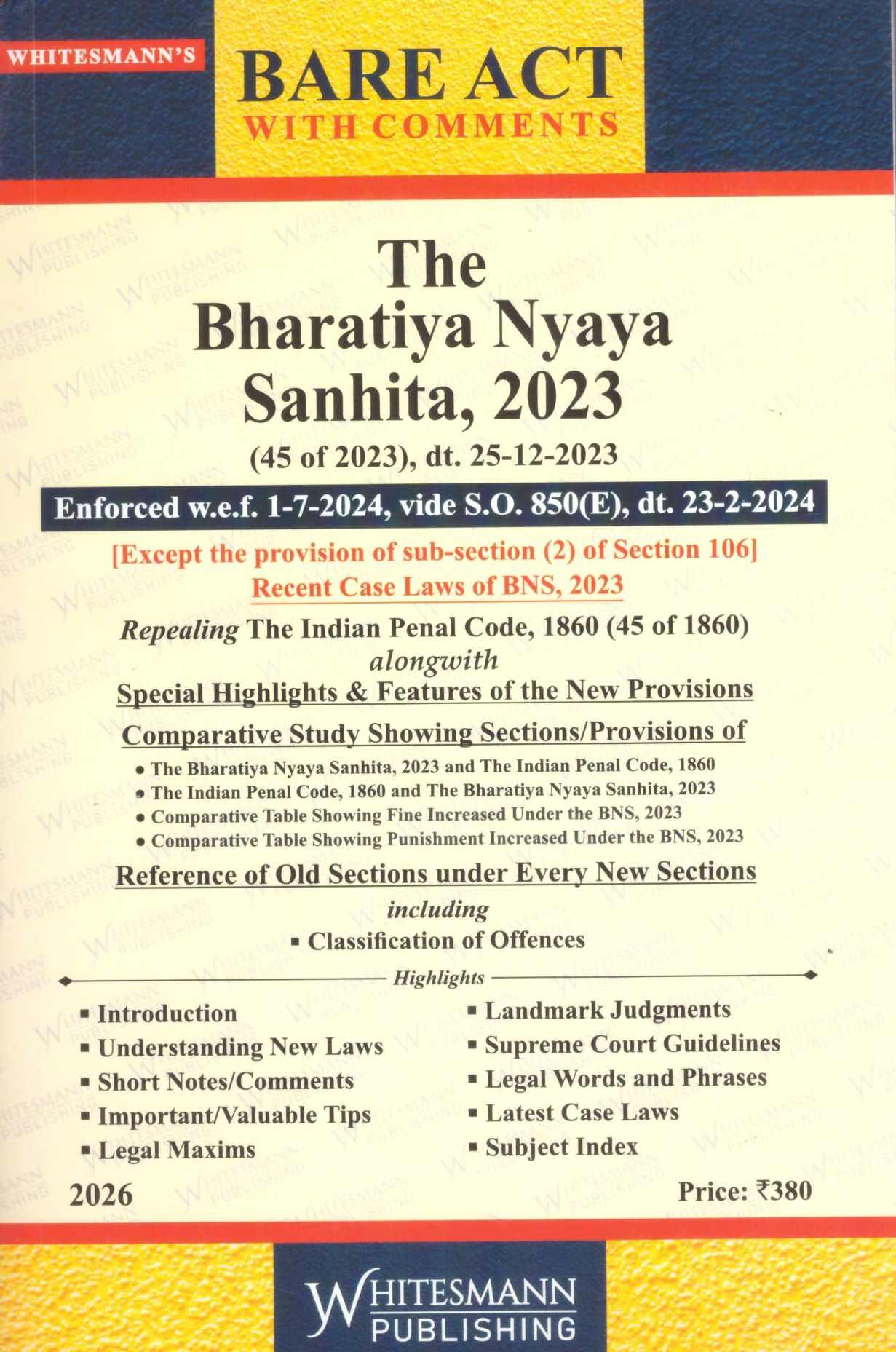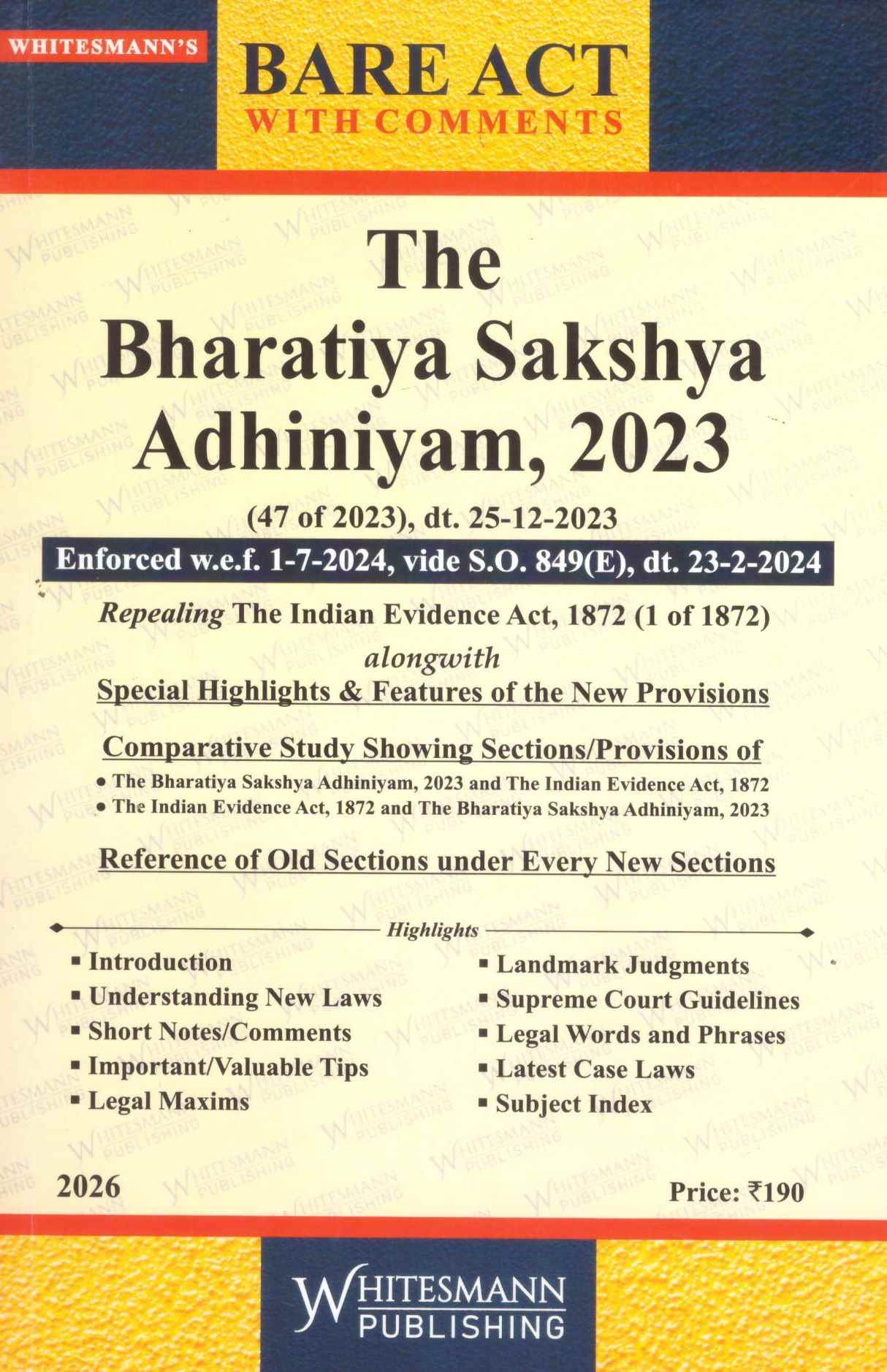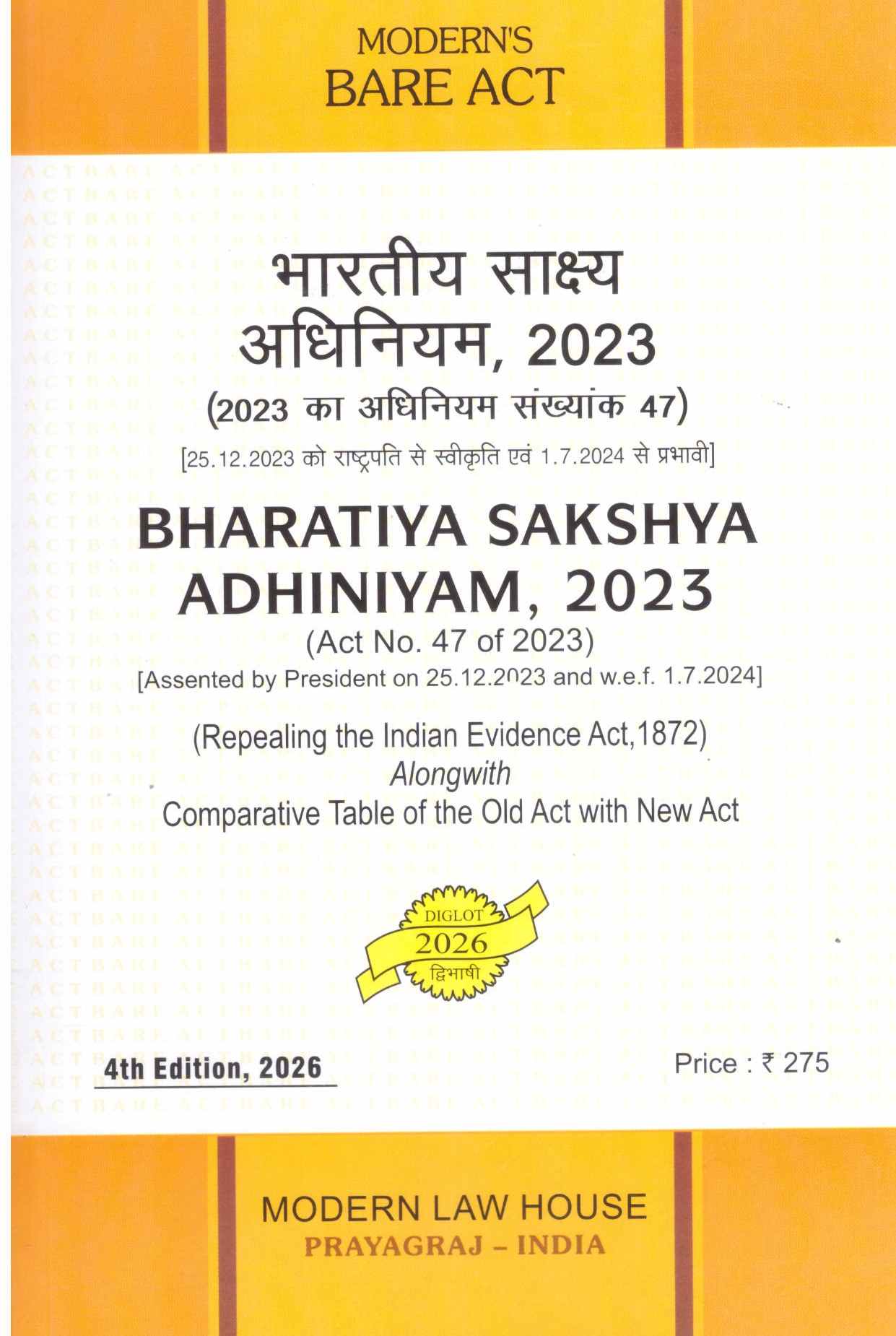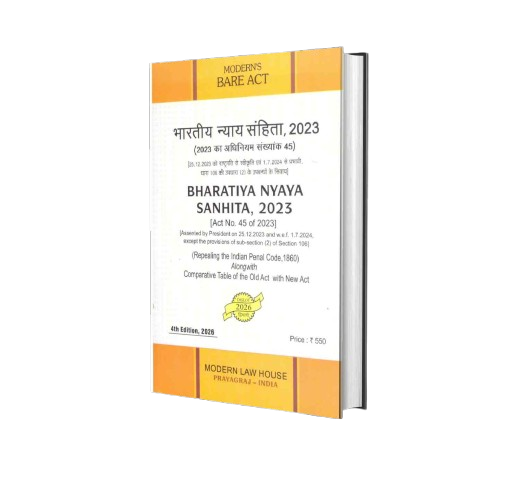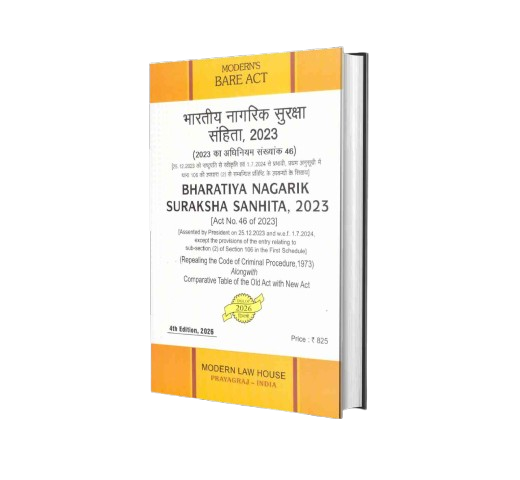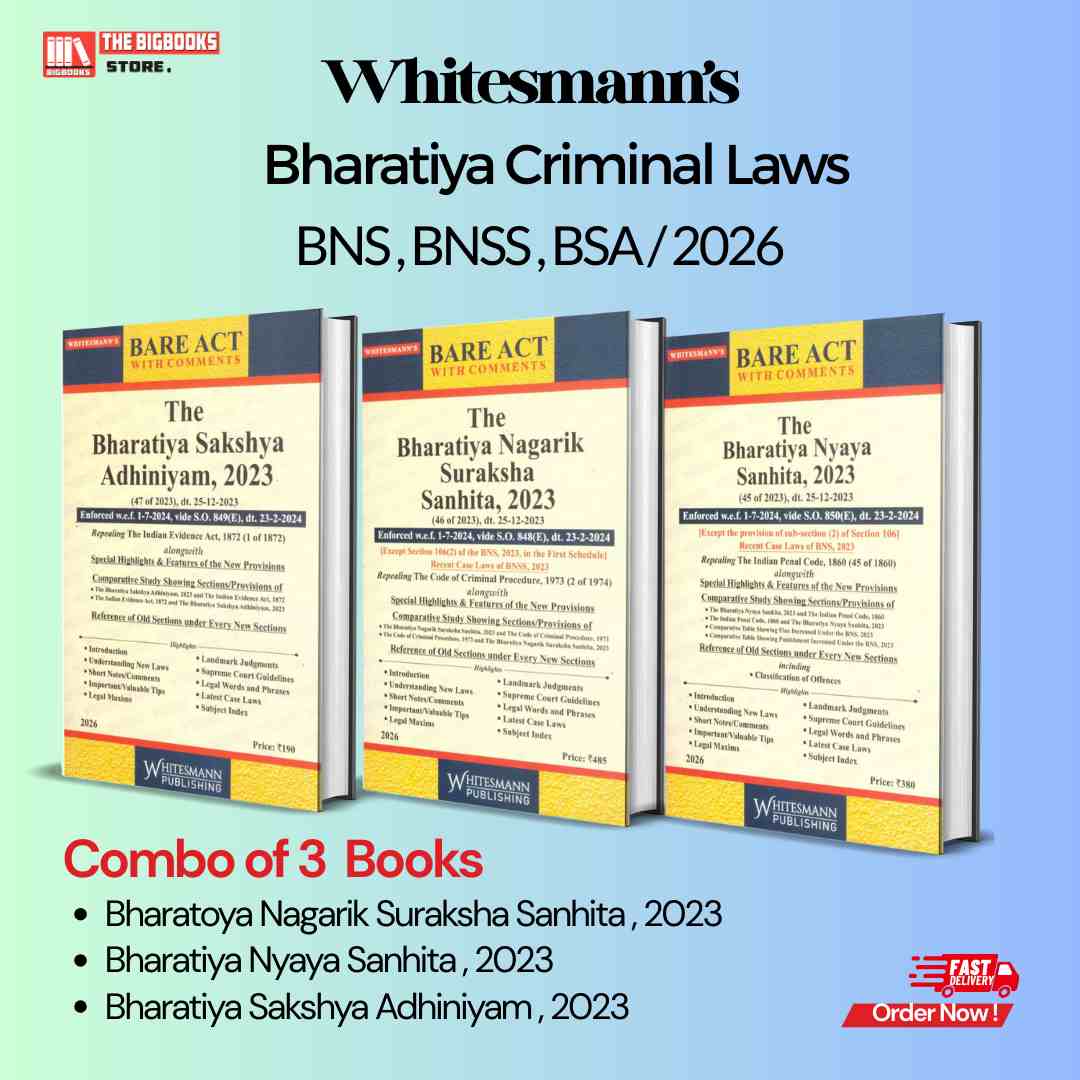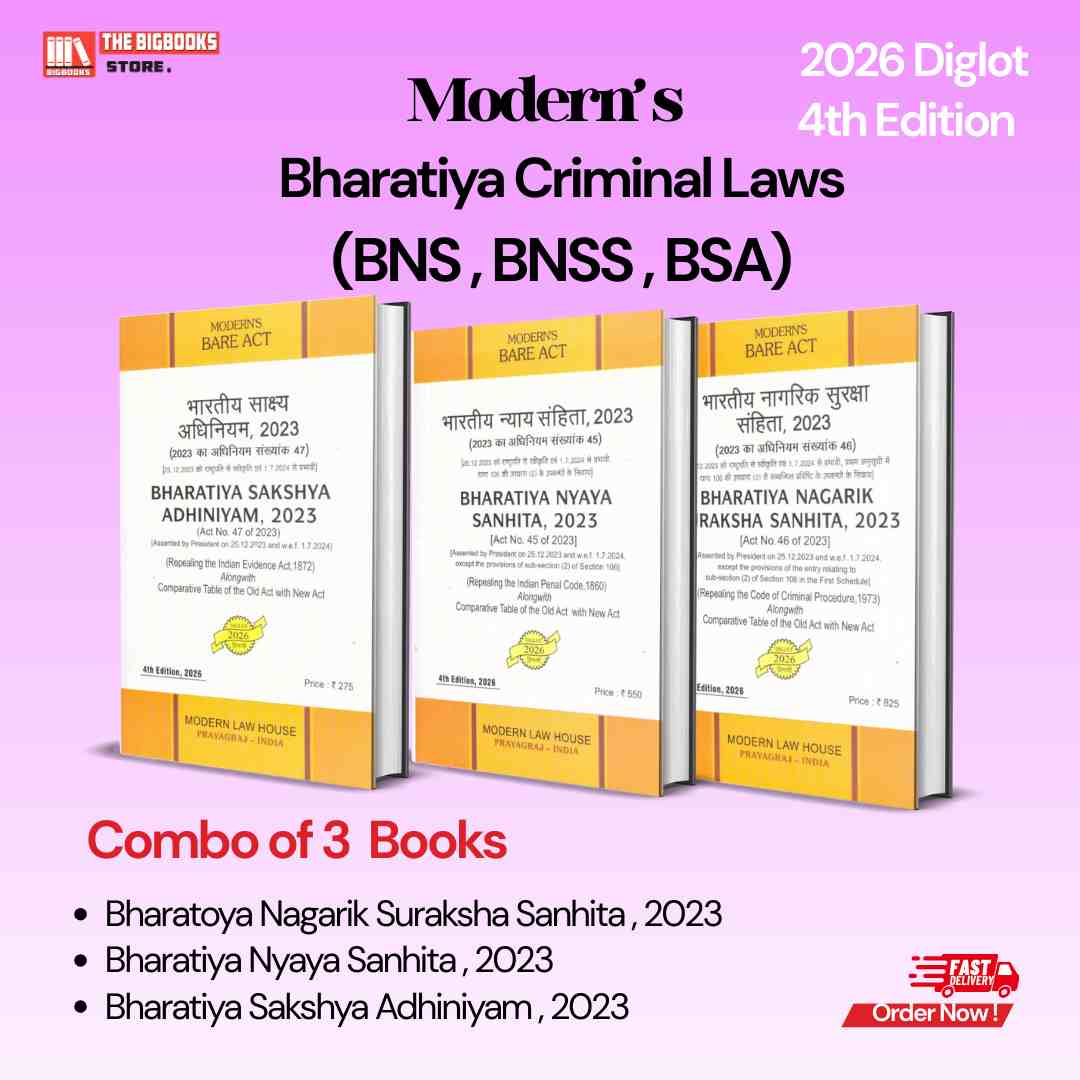Combo AIBE New Criminal Law Bare Acts (BNS, BNSS & BSA) Set Of Book Without Notes Paperback - 12 September 2024.
| Author : | COMMERCIAL`S |
|---|
This combo book set, published on September 12, 2024, is a must-have for those preparing for the All India Bar Examination (AIBE). It includes the latest editions of the Bharatiya Nagarik Suraksha Sanhita (BNS), Bharatiya Nyaya Sanhita (BNSS), and Bharatiya Sakshya Adhiniyam (BSA). This set provides a comprehensive resource for understanding the new criminal laws in India.
Key Topics in Criminal Law:
1. Indian Penal Code (IPC) Overview
- Definition: The IPC is the primary criminal code of India, outlining offenses and punishments.
- Major Sections:
- Section 299-304: Culpable Homicide and Murder.
- Section 375-376: Rape and sexual offenses.
- Section 378-462: Theft, Extortion, Cheating, and other property-related offenses.
- Punishments: Vary from fines to life imprisonment or death penalty, depending on the severity of the offense.
2. Criminal Procedure Code (CrPC) Overview
- Investigation: Section 154 (FIR), Section 161 (Examination of witnesses).
- Arrest: Procedures for arrest (Section 41, Section 46).
- Bail: Provisions for granting bail under Sections 436, 437, 438.
- Trial: Procedures for trial, including framing of charges, examination of witnesses, and judgment (Sections 221-235).
3. Indian Evidence Act (IEA)
- Types of Evidence:
- Direct vs. Circumstantial: Direct evidence is what the witness directly perceives; circumstantial relies on inference.
- Sections on Admissibility: Section 24-30 (Confession), Section 45-51 (Expert evidence).
- Burden of Proof: Section 101-114, the prosecution has the burden to prove the case beyond a reasonable doubt.
- Presumption of innocence: Every accused is presumed innocent until proven guilty.
4. Offenses Related to Women and Children
- Rape (Section 375-376 IPC): Definitions, punishment, and the age of consent.
- Domestic Violence (Protection of Women from Domestic Violence Act, 2005): Defines domestic violence, gives protection orders, and reliefs for victims.
- Child Sexual Abuse (POSCO Act): Protection of children from sexual offenses, defines various offenses like child pornography.
5. Defenses in Criminal Law
- Self-defense (Section 96-106 IPC): Right to defend oneself against assault or threat.
- Insanity (Section 84 IPC): A person of unsound mind cannot be held criminally responsible.
- Intoxication (Section 85-86 IPC): Can be a valid defense if the person was not aware of the nature of the act due to intoxication.
- Duress or Necessity: Committing a crime under immediate threat or compulsion.
6. Crimes Against Property
- Theft (Section 378 IPC): Dishonestly taking property without consent.
- Robbery and Dacoity (Section 390-402 IPC): Robbery is theft with violence; dacoity is committed by a group of people.
- Criminal Misappropriation and Criminal Breach of Trust (Section 403-409 IPC).
7. Cyber Crimes and Technology in Criminal Law
- Cyber Fraud: Section 66C, 66D of the Information Technology Act, 2000.
- Hacking: Section 66 of IT Act.
- Cyber Stalking and Harassment: Sections 66A and 354D of IPC and IT Act.
8. Important Concepts and Case Laws
- Mens Rea (Guilty Mind): Criminal intent is necessary for most crimes.
- Actus Reus (Guilty Act): Physical act of committing the crime.
- Landmark Cases:
- K.M. Nanavati v. State of Maharashtra: Landmark case on criminal law, self-defense, and the application of the IPC.
- State of Uttar Pradesh v. Rajesh Gautam: Focus on the interpretation of Section 375 (rape) and consent.

